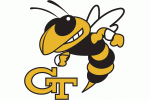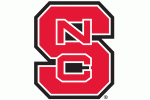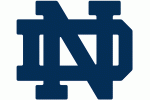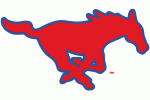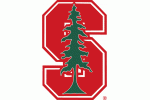After years of disparaging his school, teammates, and coach, he is no longer deserving of the honor.

Forty-three jerseys hang from the rafters of the Dean E. Smith center, and soon, Justin Jackson and Joel Berry will see theirs do the same. That permanence – your name being on display in one of the most hallowed environments in college basketball until long after you’re a grandparent and beyond – is among the highest honors in college sports. That’s the first thing: it’s an honor.
With such a rich history of basketball talent, making judgments about who should and should not receive that honor is tough. There are great players and great people whose names aren’t up there (Kennedy Meeks, Danny Green, Kendall Marshall, and Shammond Williams among them). UNC has resolved this by establishing objective criteria that determine whether or not a jersey goes up.
It has probably never occurred to anyone to establish criteria for when a jersey should come down. But there is one among that group of 43 that hangs uncomfortably, the presence of which cannot be reconciled with the purpose and spirit of the tradition of which it regrettably became a part.
It is jersey #32. The name on the back is McCants, and it needs to come down.
McCants’ jersey hangs because he was a second-team All-American in 2004. He was also, of course, a key member of the 2005 national championship team before becoming the 14th pick in the NBA draft. That sounds like the beginning of a good story in a good life.
Instead, McCants has insisted that it be otherwise. When he has not been busy failing to fulfill his promise as a professional basketball player, he’s gone out of his way to torch every aspect of his relationship with the University of North Carolina in the most self-serving, cynical manner possible.
An immediate objection is inevitable: that stripping McCants of this honor would be nothing more than small-minded revenge for McCants identifying himself as a player who took advantage of the infamous AFAM “paper classes.” The possibility that putting McCants’ jersey into a trash receptacle could be perceived as the enforcement of some kind of unspoken code of silence is, ironically, the primary reason that it won’t happen anytime soon. And if that were the real purpose, it would be wrong -- there is room in the rafters, as there should be, for people with the courage to tell unflattering truths, especially when they push UNC forward.
But Rashad McCants is no bastion of courage and truth, and this is not about the grades Deborah Crowder handed out. What McCants has alleged – notably, to select members of the press, but not to anyone with actual authority and responsibility – goes far beyond taking paper classes. Among the highlights:
· That McCants found himself facing potential ineligibility in the fall of 2004, whereupon Roy Williams told him “we’re going to be able to change a class from, you know, your summer session class and swap it out with the class that you failed, just so the GPA could reflect that you are in good standing.” McCants’ response to Williams’ denial that any such meeting occurred: “Maybe he’s getting a little old.”
· That he never wrote any papers; tutors wrote them for him.
· That tutors routinely wrote papers for players, to such an extent that he assumed that this was ordinary and expected. McCants went as far as to describe carpooling with other players to pick up the papers, turn them in, and move on with their day.
· McCants described his college experience as follows: “You don’t go to class, you don’t do nothing, you just show up and play. That’s exactly how it was.”
In order to believe these things, you have to be willing to believe all of the following:
· That over seven years of investigation by the media, the NCAA, UNC itself, and two separate independent investigators could fail to produce any evidence of any of these things, despite multiple interviews and scouring of emails and records of communications between tutors and student athletes.
· That McCants’ inability or lack of willingness to identify who the tutors writing the papers were, who was involved in the alleged carpool, and what other players had papers written for them is either a matter of some high principle or his idea of protecting UNC.
· That it makes sense for someone who’s interested in getting the truth out not to speak about these things to professionals whose job it is to investigate them.
· That all of the former student athletes who have directly contradicted McCants’ account of the UNC experience, including 16 members of the 2005 team are lying, and therefore less credible than McCants.
· That the only reason no other UNC student athlete has corroborated this account is that they lack McCants’ courage.
· That it doesn’t matter that McCants’ description of his UNC experience is internally inconsistent and contradicts his own statements about that experience.
· That it is reasonable to rely on the uncorroborated word of Rashad McCants as evidence of anything.
Let’s start with that last item. Outside the most fevered reaches of Wolfpack message board posters, you would be hard pressed to find a sentient adult willing to stake anything on McCants’ credibility, and for good reason. Considering only what is on public record, McCants has made any number of transparently false claims.
In late May, he explained to the Charlotte Observer that the reason his NBA career flopped was because of his relationship with Khloe Kardashian. “Without that situation in play, I’m a $60-$70 million player. Easily.” The more credible reason is one Kardashian gave after their breakup: “He’s a loser.”
That’s not the only bizarre claim McCants has made. In 2014, McCants offered this whopper, in response to a question about his curious unwillingness to talk to investigators about what he says happened at UNC: “I have a check being written to me from the University of North Carolina for over $10 million due to the exploitation of me as a player and the lack of education that I received. The NCAA has a check for me for over $300 million to help me facilitate these sports education programs across the country.”
Putting aside the question of how the person conducting this interview was able to beat back the need to spew coffee through his nose, it is odd that a guy who claims to be so aggrieved over the loss of educational opportunity has never bothered to seek to complete his education at UNC, despite an open invitation from UNC to do so. His teammate, Marvin Williams, recently did just that, working hard in the summers over 10 years to complete his UNC degree despite having spent only one season as a UNC basketball player, to say nothing of the fact that unlike McCants, he has had to find the time to do that in the midst of a long and successful NBA career. With over $80 million in lifetime earnings in the NBA, there is absolutely no reason for Williams to have completed that degree other than his sincere belief in the value of an education that McCants only values to the extent it draws attention to him.
Of course, McCants once spoke differently about UNC’s academic demands on him. When as an active player he blessed us with his view that the privilege of playing basketball at North Carolina was akin to serving a jail sentence, drawing predictable outrage, he hastened to explain that he was referring to having to comply with all of UNC’s academic demands on top of the work that is required to be a Division 1 athlete. In addition to being irreconcilable with his later “show up and play” description of his life as a UNC athlete, the explanation doesn’t do much for McCants’ desire to have anyone believe he had much interest in education.
Even when he’s doing his best to make UNC look bad, McCants’ statements contradict themselves. During the same interview in which he claimed not to have to attend class, McCants explained that Roy Williams had to know “100 percent” of what was going on in the AFAM studies scandal, because . . . wait for it . . . Roy Williams was all over who was and was not attending class, making players run wind sprints if they skipped. Either no one cared whether anyone went to class or not, or they cared a great deal. Whichever version suits McCants’ needs at the moment will do.
Those needs are driven first and foremost by McCants’ near-pathological need to avoid the obvious conclusion that the person primarily responsible for the disappointments in his life is Rashad McCants. McCants has an outsized view of his own ability as a player, including the demonstrably false claim that he was national player of year in college, and the apparently sincere belief that his greatness as a player has been suppressed by college and pro coaches who – get this – forced him to “contain[his] talents for the sake of the team and the tradition of the school, club, or organization.” The conspiracy of coaches fighting to keep the world from seeing Rashad McCants’ greatness stretches across the globe. Here is Rashad McCants’ professional basketball career, by team.
/cdn.vox-cdn.com/uploads/chorus_asset/file/8603583/McCants_Chart.PNG)
That’s thirteen different stints covering four continents (details are sketchy with foreign teams, but it appears there may be other stints not included above). With the exception of 3 ½ seasons at the outset of his NBA career, none of these teams kept McCants around for more than a season, and they often parted ways with him well short of that length of time. Suffice it to say that this career trajectory does not jibe with McCants’ self-regard.
McCants consistently resolves this discrepancy the same way: it’s his coaches’ fault, especially Roy Williams’. McCants is absolutely convinced that, with the possible exception of Khloe Kardashian, the only reason for the gap between the NBA career he envisioned for himself and the one he has actually had is Roy Williams. He has never let up on this.
In 2011, McCants and his father went on a Facebook rant, blaming Roy for wrecking his career. In 2013, McCants blamed Roy Williams for his draft position: “During interview processes before the draft, I encountered a lot of negative information reflective of my time at UNC. There is one thing I know. NBA teams weren’t asking my teammates[1] what kind of guy I was, they were asking my coaches. So in that regard I slipped in the draft from a top 3 prospect to the last pick in the lottery.”
And just last week: “I’ve been told, numerous conversations and numerous sources,[2] that I’ve been blackballed. . . When one person who is a higher-up, Hall of Famer, says don’t touch him, they won’t. And that’s just how it is.” This was, of course, part of an interview in which McCants made sure to say that “the things [Roy Williams has] done and said and denied, I just can’t respect.”[3]
In the mind of Rashad McCants, Roy Williams was unable to prevent him from becoming a lottery pick despite the UNC coach’s best efforts, but after four seasons of big money and missed opportunities for McCants, Roy’s opinion apparently became so powerful across the coaching globe that McCants has been unable to catch on anywhere else at any level, despite such prodigious talent that he sincerely believes that “There isn’t a 2-guard in the [NBA] who can guard me. Not one.”
There is not the faintest reason to have a shred of confidence in anything McCants says. That view isn’t limited to UNC apologists. After McCants’ infamous 2014 Outside the Lines interview, Julius Hodge, no UNC fan, tweeted: “This dude McCants is a certified ‘nut job’. Anyone who knows him know that #dontbelievehim.” Dave Glenn, who’s spent his career covering ACC sports, on Rashad McCants’ credibility: “I’ve probably encountered 1,000 people associated with UNC athletics in some way. If I ranked them from 1 to 1,000, Rashad McCants would be last.”
The things McCants has said about his UNC experience have no discernible foundation beyond his own petty desire to inflict maximum harm on a coach and a university that he blames for a basketball career that has not gone according to plan. Amid the hysteria and media attention surrounding the AFAM scandal, McCants, a troubled soul from the moment he set foot on UNC’s campus, saw an opportunity to take out his anger at a point of maximum vulnerability, knowing that he could say anything he wished, true or not, and it would be repeated.
If the extraordinary things that Rashad McCants has said are true, then he owes it to UNC (and frankly, to his own credibility) to provide evidence, support, and corroboration, or at a minimum to cooperate with the investigation. Given that he has done none of that, the most sensible conclusion is that he threw a rhetorical Molotov cocktail into the UNC mess not out of a desire to pursue truth and academic reform, but out of malice and bitterness towards a man and an institution that he despises so strongly that he is willing to lie to do them harm.
McCants said in last week’s Charlotte Observer interview that he has no relationship with UNC or with Roy Williams. The truth is that he has forfeited the right to have one. Absent something not currently known, the presence of his name among the jerseys in the UNC rafters is an insult to the institution he has sought to damage and the names of the peers whose reputations he has casually impugned to serve his personal agenda.
A jersey in the rafters is an honor. Rashad McCants has shown none. An honor taken seriously enough that it is denied to such Tar Heel greats as John Henson, Ed Cota, and Dudley Bradley should not be allowed to remain with a man who has shown utter contempt for its meaning solely because he meets the technical requirements for qualification.
If Rashad McCants wants to change course and provide support for his allegations or cooperate with investigators, he should be given a fair hearing. Short of that, his conduct compels one conclusion:
Take it down.
[1] Given that McCants acknowledges that he has not had any relationship with his ex-teammates from the 2005 team, his confidence in what his teammates might say about him seems likely misplaced.
[2] As per usual with McCants, details about these sources and conversations are elusive.
[3] Out of curiosity – is there a single person who read this interview whose immediate thought was “well, if he doesn’t have Rashad McCants’ respect, he certainly isn’t going to get mine”?







